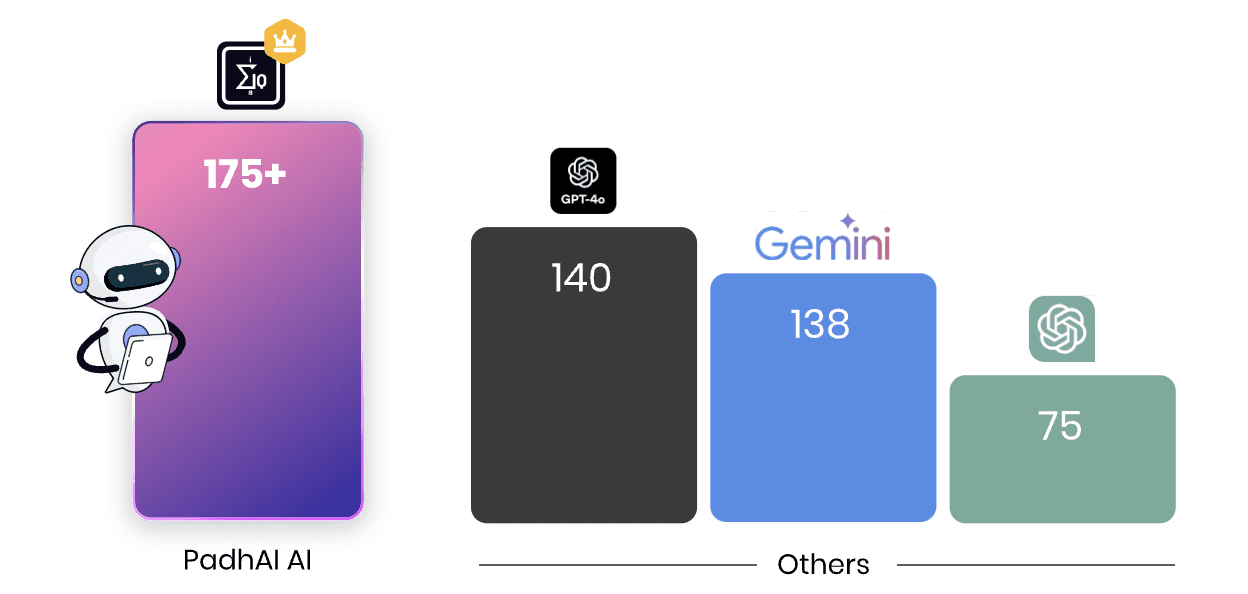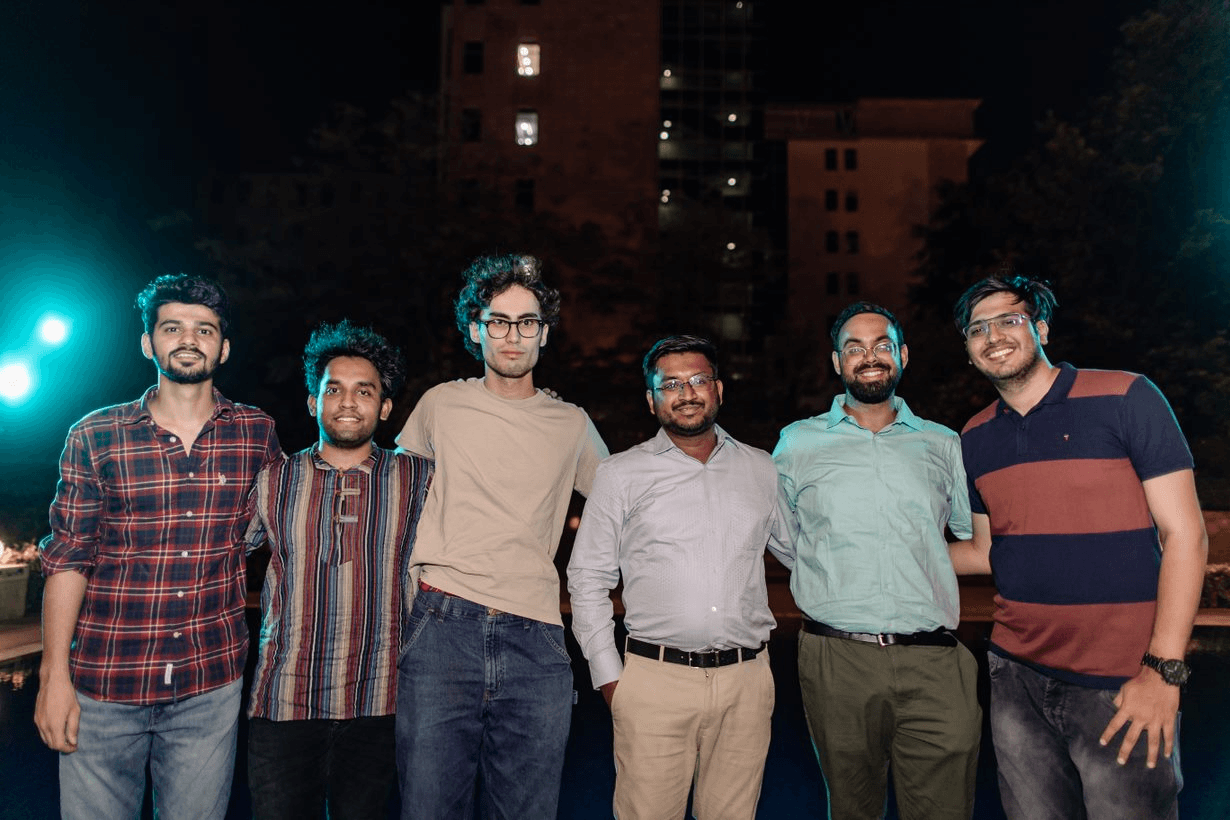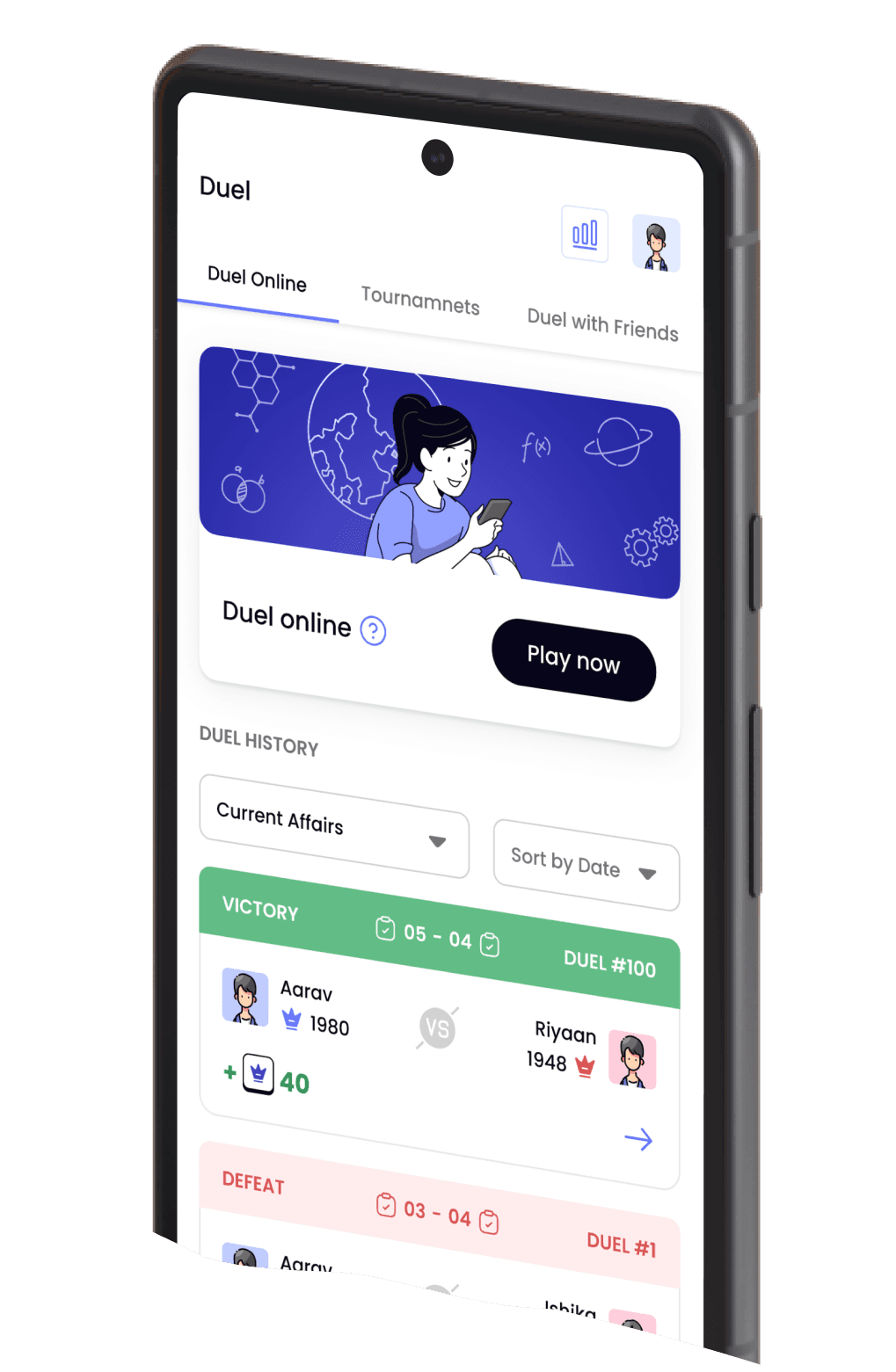Jun 27, 2024
June 16, 2024, marked a monumental day for UPSC aspirants and the future of exam preparation in India. Our team of AI PhDs and IITians at PadhAI achieved the unthinkable: our in-house AI system, PadhAI AI, cracked the formidable UPSC preliminary exam, a feat once reserved for the brightest minds in the nation.
The UPSC Prelims Exam
The UPSC Civil Services Examination, the gateway to the prestigious Indian Administrative Service (IAS) and other coveted government positions, is nothing short of a national obsession. Often dubbed the "mother of all exams," the UPSC Prelims stands as the first, and arguably most daunting, challenge for aspiring civil servants.
Why is it so tough? A syllabus that stretches from the ancient kingdoms of India to the latest breakthroughs in gene editing. Throw in a mind-numbing amount of data, tricky policy questions that make your head spin, and a daily dose of news you can't afford to miss. That's the UPSC Prelims for you. It's not just about knowing stuff; it's about connecting the dots, thinking on your feet, and proving you have the mental grit to handle the pressure cooker of the civil services.
The Prelims consists of two papers, each posing a unique and rigorous challenge:
General Studies Paper I (GS Paper I): This comprehensive assessment of a candidate's knowledge delves into current affairs, history, geography, Indian polity and governance, economy, environment, science and technology, and even the arts and culture. The sheer breadth of topics covered makes GS Paper I a true test of intellectual depth and breadth.
Civil Services Aptitude Test (CSAT): This paper evaluates comprehension skills, logical reasoning, data interpretation, and decision-making abilities.
The sheer volume of information and the fierce competition make the UPSC Prelims a monumental challenge. Thousands of aspirants sacrifice sleep, social lives, and sometimes even sanity, pouring over textbooks, attending coaching classes, and taking countless mock tests. The journey is long, arduous, and fraught with uncertainty.

AI and UPSC: Why It's Not Just About Answering Questions
The UPSC Prelims isn't a simple test of rote memorization. It demands critical thinking, analysis, and the ability to apply knowledge across diverse domains. This presents a unique challenge for AI systems, which often excel at processing vast amounts of information but struggle with nuanced understanding and contextual reasoning.
But isn’t UPSC an objective exam? Many assume that because the UPSC Prelims is an objective exam, AI should have an easy time cracking it. After all, couldn't an AI simply "brute force" its way through the questions by finding the most relevant facts and selecting the most statistically likely answer? In theory, yes – similar to how AlphaGo could theoretically evaluate every possible move in a game of Go. However, the real challenge lies in developing a system that can practically and efficiently process, verify, and connect information.

Broad AI models, like those offered by OpenAI or Google, are trained on massive datasets and can generate impressive responses to a wide range of prompts. However, they often lack the specialized knowledge and in-depth understanding required for tackling the multifaceted nature of the UPSC syllabus. They might regurgitate information without truly grasping the underlying concepts or struggle to connect seemingly disparate pieces of information to arrive at the correct answer.
This inherent difficulty makes PadhAI AI's triumph all the more significant.
PadhAI AI’s UPSC 2024 Attempt
The atmosphere was tense at The LaLiT in New Delhi, where we'd gathered a crowd of educators, seasoned UPSC coaches, and curious journalists. Our PadhAI AI was about to take center stage, attempting a feat no AI had ever done before: tackling the UPSC Prelims live. Months of hard work had brought us to this point, but could our AI really crack the notoriously difficult exam?
Everyone held their breath as the UPSC Prelims 2024 General Studies Paper I was scanned directly from the exam center and fed into the AI. The countdown began, and the tension was palpable.
With every eye glued to the screen, the AI began its monumental task. The UPSC Prelims 2024 General Studies Paper I was scanned right in front of the exam center, its questions fed into the AI's digital mind. The clock began its relentless countdown, each tick echoing the mounting pressure.
The audience, armed with the PadhAI app and the questions displayed on the screen, embarked on their own challenge, attempting to solve the paper alongside the AI. With every correct answer, a satisfying ding resonated through the room, signaling the AI's progress and adding to the electrifying atmosphere. In a whirlwind of calculations and deductions, just under 7 minutes elapsed before the AI declared its task complete, leaving the room suspended in a breathless silence.
PadhAI AI Exceeds Expectations
As the day progressed and answer keys from various coaching institutes trickled in, we eagerly tallied up our AI's performance. When the final score was revealed – a staggering 175+ out of 200 – a wave of exhilaration and disbelief swept through the PadhAI team. This was no mere passing grade; it was a score that would undoubtedly place our AI among the top 10 performers nationwide, potentially even claiming the coveted rank 1.
This achievement was especially noteworthy as we compared PadhAI's results with other broad AI models commercially available from tech giants like OpenAI and Microsoft. None of these models were able to surpass the 140 mark, highlighting the specialized expertise and unique capabilities of our AI.

The typical qualifying marks for the UPSC Prelims hover below 100, making our AI's achievement even more remarkable. It was a testament to the countless hours of meticulous research, development, and fine-tuning that had gone into creating this groundbreaking AI. Our dream of building an AI capable of not just assisting but excelling in UPSC preparation had become a reality, far exceeding even our own lofty expectations.
A New Era of UPSC Exam Preparation
The significance of this achievement extends beyond the realm of the UPSC exam. It is a testament to the transformative power of AI in education. PadhAI's AI is not just a teacher; it's the smartest aspirant in the room, constantly learning and evolving.
This was the first time ever that an AI tool took and aced an actual competitive exam in a live, public setting. It sets a new benchmark for what AI can achieve in education and opens up endless possibilities for how students can prepare for exams in the future.
Empowering UPSC IAS Students with AI
PadhAI's success story is particularly inspiring for UPSC IAS aspirants. It demonstrates the potential of AI to personalize learning, providing students with tailored guidance and support throughout their preparation journey. By analyzing vast amounts of information, identifying patterns, and adapting to individual learning styles, AI tools like PadhAI can significantly enhance the effectiveness and efficiency of UPSC exam preparation. This not only levels the playing field for students from diverse backgrounds but also empowers them to reach their full potential.
The Role of AI in Education
PadhAI's achievement also highlights the broader role of AI in revolutionizing education. AI can personalize learning experiences, automate repetitive tasks, provide instant feedback, and offer 24/7 access to educational resources. By supplementing traditional teaching methods, AI can help educators cater to the diverse needs of students, identify areas for improvement, and create more engaging and effective learning environments. The possibilities are endless, and as AI continues to advance, we can expect to see even more innovative applications in education.
Public Scrutiny and Validation
The PadhAI team was committed to showcasing not only the AI's impressive capabilities but also its reliability and transparency. This wasn't a performance shrouded in secrecy; it was a live demonstration, open to scrutiny and validation. The entire event, from the moment the UPSC Prelims 2024 General Studies Paper I was unveiled, to the AI's final score reveal, was livestreamed for the world to see. Questions, answers, and the AI's thought process were all laid bare, accessible to anyone who tuned in.
We firmly believe that transparency is key to building trust, especially when introducing groundbreaking technology like PadhAI. By opening up our process and results to public scrutiny, we aim to demonstrate that our AI is not just a black box of algorithms but a genuine study companion that can truly comprehend and conquer the complexities of the UPSC exam.
Ongoing Research and Development
We are incredibly proud of what PadhAI has accomplished, but we know this is just the beginning. We are committed to continuing our research and development, pushing the boundaries of AI in education. Our goal is to empower students with the best tools and resources to achieve their academic dreams, and this event is a significant step in that direction.
The future of exam preparation is here, and it's powered by AI.


